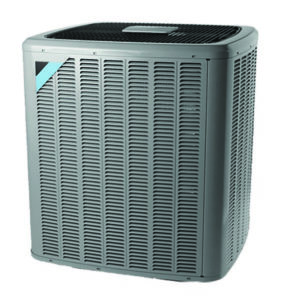A heat pump air conditioning system is an energyefficient way to heat and cool your home all year round. Basically, it’s an air conditioner that also works in reverse to heat your home in the winter. If you live in a region with mild winters (mostly staying above 35 degrees), a heat pump system is the perfect way to save on your energy costs. Heat pumps are an efficient and clean alternative to a gas furnace.
BENEFITS OF HEAT PUMP AIR CONDITIONING SYSTEMS
Energy Efficient | The ability to either heat or cool a home, combined with the fact that heat pumps move heat rather than create heat, make heat pumps an excellent option for consumers interested in energy efficiency.
Help the Environment | Propane and natural gas heating systems emit greenhouse gases into the atmosphere when used. Heat pumps produce zero harmful green house gas emissions and help protect our environment.
Potentially Safer | Heat pumps can also eliminate the risk of carbon monoxide poisoning and problems that can occur with natural gas or propane.


Health and Wellness | Heat pumps provide both good air filtration, as well as dehumidification. Improved indoor air quality is great for the whole household, but especially for those with allergies or sensitivities to air pollution.
Comfort and Control | Certain heat pump technologies enable heating and cooling by zone, providing households with the control to adjust temperatures as needed for maximum comfort.
Flexibility | With several options to choose from, there is flexibility in selecting the best type of heat pump solution, based on household needs and savings goals.




TYPES OF HEAT PUMP AIR CONDITIONERS
Central Air Conditioning Heat Pump | The most common heat pump option. An outside heat pump unit works in conjunction with an indoor air handling unit to move warm air, acting as an air conditioner in the summer and a heating system in the winter.
Variable refrigerant flow (VRF) system | Utilizes the industry’s latest technology for minimal energy loss. A VRF system allows one outdoor condensing unit to be connected to multiple indoor units, providing ultimate physical or zone control for each area.
Single-Zone Mini-Split System | When flexibility is needed or space is tight. With small, ductless units, heating and cooling can be managed by room or area, allowing for better energy management while avoiding potential energy loss within ductwork.
Multi-Zone Ductless Mini-Split System | A ductless system, in particular, is a great solution for homes without a well-designed central heating/cooling system. Instead of renovating the home’s existing ductwork, a ductless system can provide efficient heating and cooling at a lower operational cost.
How does a heat pump work?




Tips for converting to a Heat Pump Air Conditioning System
For Southern California’s warmer climate, consider the SEER and HSPF rating when selecting a new heat pump. SEER stands for seasonal energy efficiency ratio and measures cooling efficiency. HSPF stands for heating seasonal performance factor and measures heating efficiency. To ensure high efficiency, look for ENERGY STAR®-certified units.









